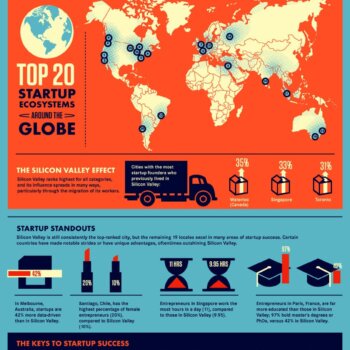(Women on Top in Tech is a series about Women Founders, CEOs, and Leaders in technology. It aims to amplify and bring to the fore diversity in leadership in technology.)
Here is my interview with Amy Jo Kim, CEO at ShuffleBrain Inc. She is a world-renowned social game designer, community architect & start-up coach. She helps ambitious entrepreneurs innovate faster & smarter. Her design credits include Rock Band, The Sims, eBay, Netflix, Cover Fashion, indiegogo, nytimes.com, Ultima Online, Happify, Pley and numerous startups. Named by Fortune as one of the top 10 influential women in games, Amy Jo pioneered the idea of applying game design to digital services and is well known for her 2000 book, Community Building on the Web. She holds a Ph.D. in Behavioral Neuroscience from the University of Washington (along with a BA in Experimental Psychology) and is an adjunct Game Design professor at the USC School of Cinematic Arts.
What makes you do what you do?
After working as a game and product designer for two decades – including helping to create ground-breaking products like eBay, Rock Band, The Sims, Covet Fashion, and Happify – I wanted to extend my impact and reach. So I built and launched a training program called Game Thinking to help entrepreneurs innovate faster and smarter by using techniques from wildly successful games and products. We now have a suite of offerings, and I’ve trained hundreds of entrepreneurs and licensed my materials to investors eager to improve their outcomes. This is exactly what I want to be doing – I feel blessed & fulfilled.
How did you rise in the industry you are in?
My success is based on helping others succeed and subverting my ego at the service of the product and team. I established my reputation doing top-notch hands-on work as a designer – and then evolved into a team leader who can keep things moving and make tough choices without alienating colleagues. Along the way, I shared what I was learning by blogging, speaking, and offering high-impact webinars and workshops. There’s no substitute for helping people get big-time results; the success of my clients and projects speaks for itself.
Why did you take on this role/start this startup especially since this is perhaps a stretch or challenge for you? (or viewed as one since you are not the usual leadership demographics)
I love helping teams design great products and reach their goals. It’s challenging and rewarding to grow a global business. Through the Game Thinking Academy, I’ve been able to empower product leaders worldwide to leverage these powerful techniques and find success. That’s the fuel that keeps me going.
Do you have a mentor that you look up to in your industries or did you look for one or how did that work?
I’ve been lucky enough to be mentored by amazing game designers I’ve worked with – particularly Will Wright, Richard Garriott, Raph Koster and Tracy Rosenthal-Newsom. And I’ve mentored many younger female game and product designers – there are 3 I’m actively involved with right now. It’s a powerful co-learning relationship that I find very satisfying.
Now as a leader how do you spot, develop, keep, grow and support your talent?
I run an online business and work with a talented team that’s spread ours globally. I’ve found that if you offer someone a compelling project and an effective remote working relationship, you can get access to great people who are often overlooked due to location.
Do you consciously or unconsciously support diversity and why?
I support diversity and actively seek out candidates in international markets. I enjoy working with a mix of men and women from different backgrounds – we get better results and having a diverse team helps me serve my VERY diverse client base effectively.
What is your take on what it takes to be a great leader in your industry and as a general rule of thumb?
Great leaders empower people with a compelling vision and clear goals — and get out of their way. Micromanaging can be tempting in the short run, especially when you’re proficient in the task you’re managing – but providing support and inspiration is MUCH more powerful in the long run and is necessary for building and maintaining high-performing teams.
Advice for others?
Don’t fall into the trap of trying to be everything to everyone. Focus on your super-power – the skills and talents that bring you joy and fulfillment – and leverage that. Get good at collaborating and helping others shine. Surround yourself with complementary team members who fill in your gaps, challenge you and bring out your best. If you mobilize a team and deliver massive value to the people you’re serving, many things fall into place.
To learn more about how you can leverage Game Thinking and super-charge your success, click here: http://gamethinkinglive.com
To learn more about ShuffleBrain, please see http://www.shufflebrain.com/.
I am a huge fan and cheerleader of Women Leaders — If you know of an AMAZING Woman Founder, CEO, Leader in Tech or you are one yourself — Write me here.
AMPLIFY Conscious Business Leadership with me.






























